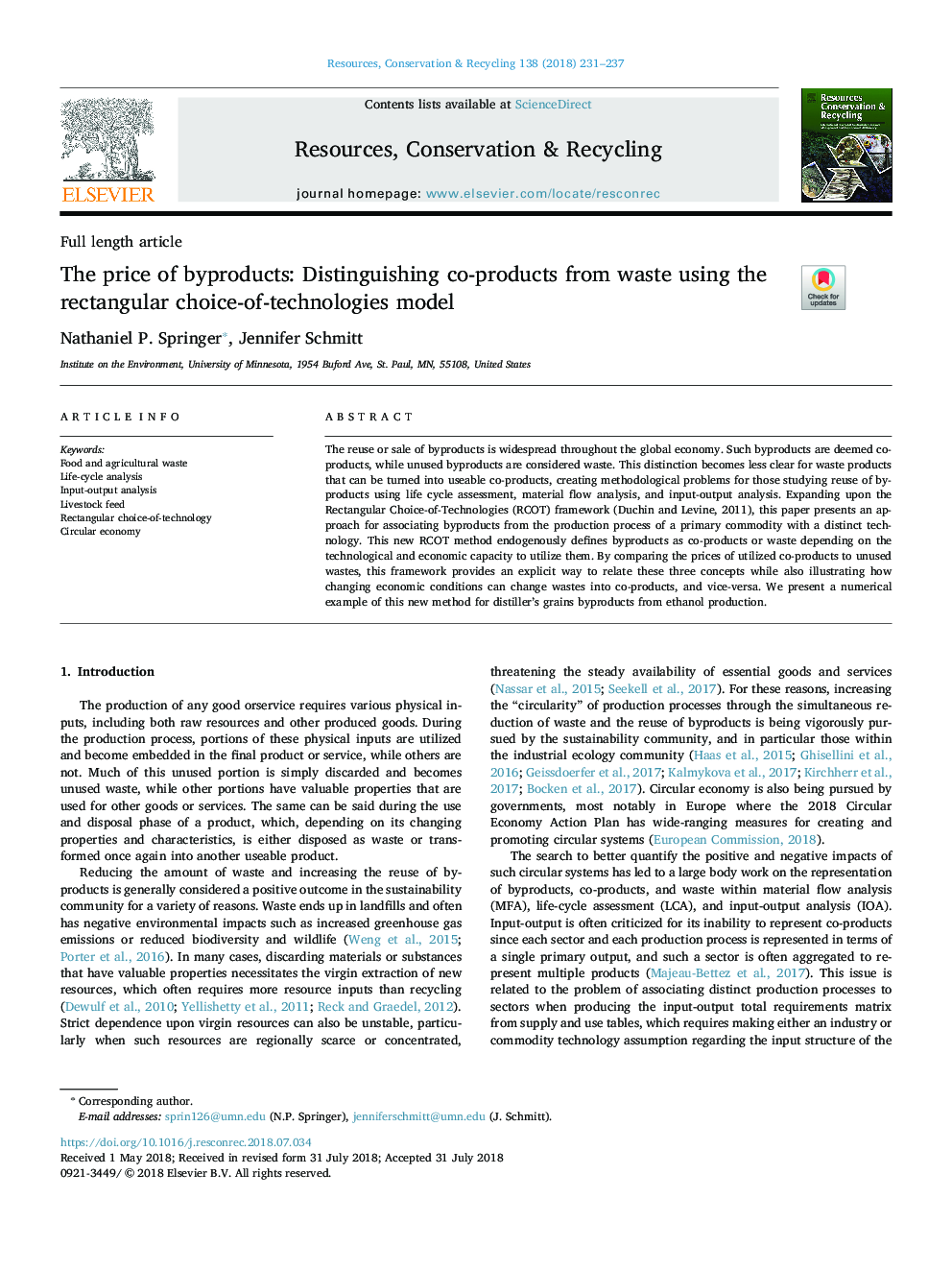| Article ID | Journal | Published Year | Pages | File Type |
|---|---|---|---|---|
| 11005428 | Resources, Conservation and Recycling | 2018 | 7 Pages |
Abstract
The reuse or sale of byproducts is widespread throughout the global economy. Such byproducts are deemed co-products, while unused byproducts are considered waste. This distinction becomes less clear for waste products that can be turned into useable co-products, creating methodological problems for those studying reuse of byproducts using life cycle assessment, material flow analysis, and input-output analysis. Expanding upon the Rectangular Choice-of-Technologies (RCOT) framework (Duchin and Levine, 2011), this paper presents an approach for associating byproducts from the production process of a primary commodity with a distinct technology. This new RCOT method endogenously defines byproducts as co-products or waste depending on the technological and economic capacity to utilize them. By comparing the prices of utilized co-products to unused wastes, this framework provides an explicit way to relate these three concepts while also illustrating how changing economic conditions can change wastes into co-products, and vice-versa. We present a numerical example of this new method for distiller's grains byproducts from ethanol production.
Related Topics
Physical Sciences and Engineering
Energy
Renewable Energy, Sustainability and the Environment
Authors
Nathaniel P. Springer, Jennifer Schmitt,
